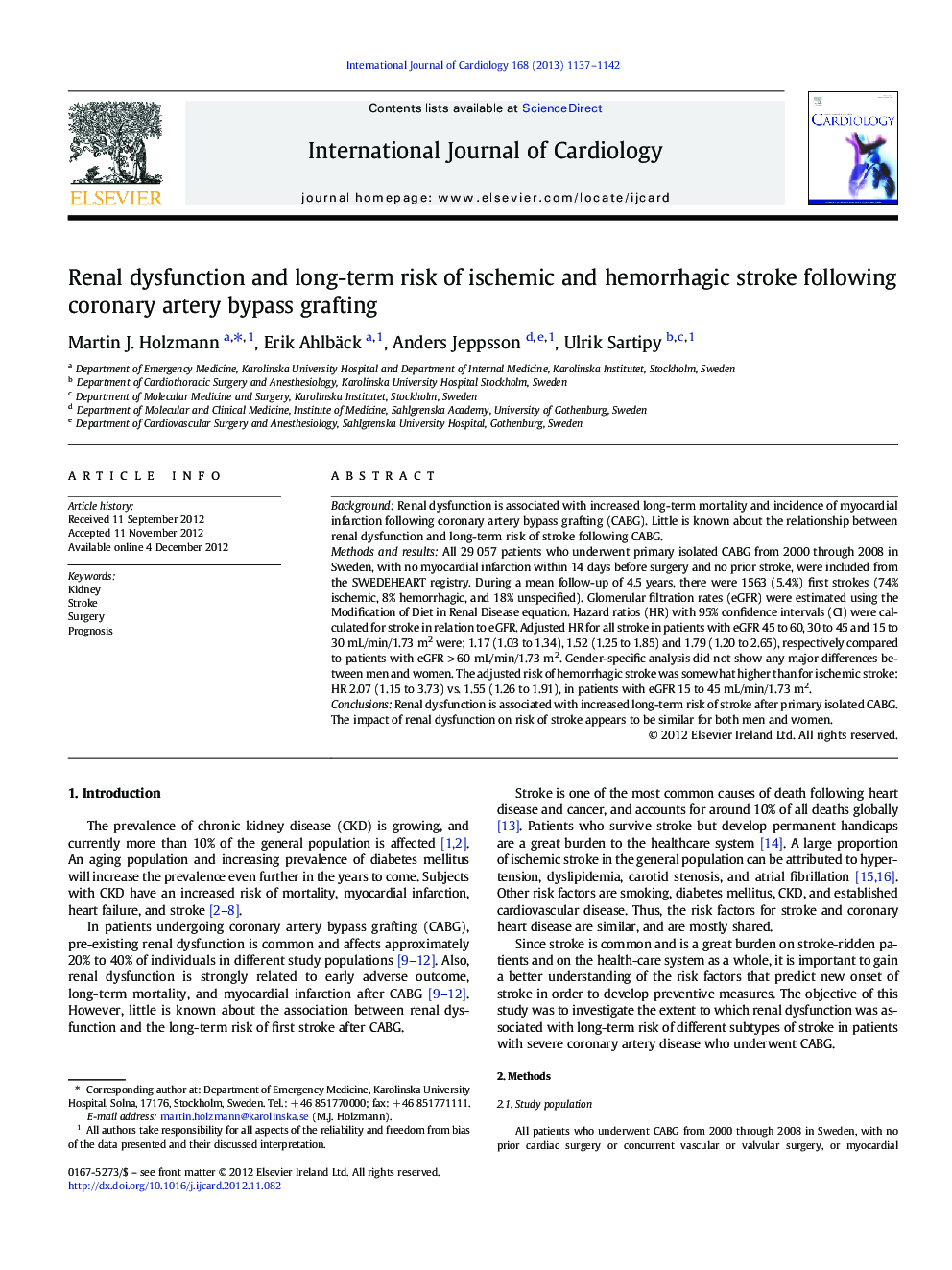| Article ID | Journal | Published Year | Pages | File Type |
|---|---|---|---|---|
| 5974230 | International Journal of Cardiology | 2013 | 6 Pages |
BackgroundRenal dysfunction is associated with increased long-term mortality and incidence of myocardial infarction following coronary artery bypass grafting (CABG). Little is known about the relationship between renal dysfunction and long-term risk of stroke following CABG.Methods and resultsAll 29 057 patients who underwent primary isolated CABG from 2000 through 2008 in Sweden, with no myocardial infarction within 14Â days before surgery and no prior stroke, were included from the SWEDEHEART registry. During a mean follow-up of 4.5Â years, there were 1563 (5.4%) first strokes (74% ischemic, 8% hemorrhagic, and 18% unspecified). Glomerular filtration rates (eGFR) were estimated using the Modification of Diet in Renal Disease equation. Hazard ratios (HR) with 95% confidence intervals (CI) were calculated for stroke in relation to eGFR. Adjusted HR for all stroke in patients with eGFR 45 to 60, 30 to 45 and 15 to 30Â mL/min/1.73Â m2 were; 1.17 (1.03 to 1.34), 1.52 (1.25 to 1.85) and 1.79 (1.20 to 2.65), respectively compared to patients with eGFR >Â 60Â mL/min/1.73Â m2. Gender-specific analysis did not show any major differences between men and women. The adjusted risk of hemorrhagic stroke was somewhat higher than for ischemic stroke: HR 2.07 (1.15 to 3.73) vs. 1.55 (1.26 to 1.91), in patients with eGFR 15 to 45Â mL/min/1.73Â m2.ConclusionsRenal dysfunction is associated with increased long-term risk of stroke after primary isolated CABG. The impact of renal dysfunction on risk of stroke appears to be similar for both men and women.
